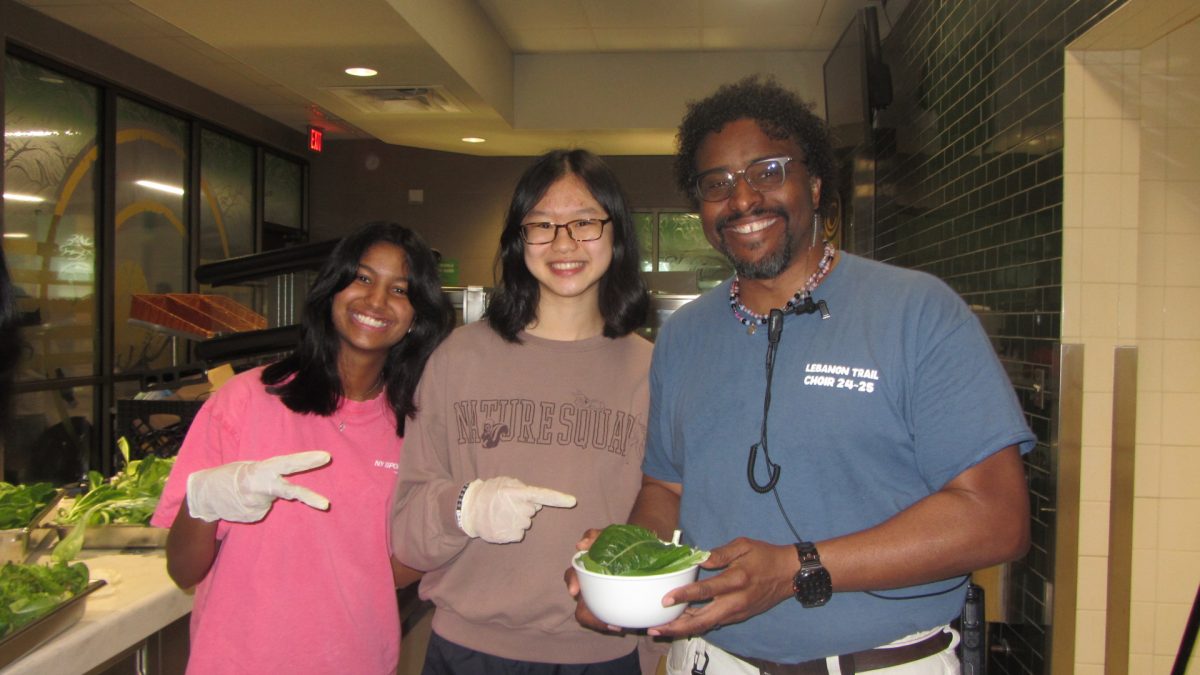Tournament Debate isn’t as quick and easy as believed, it entails back to back rebuttals and counter arguments which require skill and practice. In February, our debaters went out to the Newman Smith High School Competition, a highly competitive tournament that pushed them to the limit with some of the region’s best debaters. I interviewed a few of my peers to understand what it felt like for them to train for the tournament and how they performed. Their experiences summarize the work, struggles, and triumphs of being a competitive debater.
The Preparation: A Test of Endurance
Prior to the tournament, debaters invested hours, considering arguments, formulating counterarguments and practicing the delivery of them. At Lebanon Trail High School, preparing was less about memorization—it was about strategy, flexibility, and reasonability, focusing on their endurance and ability to last throughout the entirety of the competition while honing their skills.
“It was a very long tournament and it started on Friday and ended Saturday evening, so just the amount of time, it takes a lot of endurance – kind of like a track meet – where your event might only take a few minutes but you have to be there the whole time,” said Meredith Macleod, the LT Debate Coach. “I think just how important it is to be prepared for your Debate event, you can never have too much preparation.”
Practices included circular sparring, in which debaters participated in a scrimmage or practice round of the tournament. Additionally, preparing also meant receiving constructive criticism on everything, ranging from rational consistency to delivery and research, in which participants needed to keep abreast of current affairs and philosophical frameworks relevant to their cases.
To others, mental preparation was just as important as the technical part of debate. The pressure of the competition could be devastating and confidence is key in being able to succeed in a round of debate.
“Before tournaments, I would tell myself that nothing bad can come out of it,” said Darsh Chauhan, a Junior Debater at LT. “Even if I spoke in front of 30 people or even 5 people, I went in with the mindset of ‘What’s the worst that could happen?’ It seemed to help me a lot!”
The Competition: Meeting the Challenge
The competition itself was a whirlwind of high-stakes rounds, brimstone-and-fire exchanges, and moments of victory. Each debate was an opportunity to stage weeks worth of preparation to the ultimate challenge, tearing down the case of an opponent on the spot. There were exhausting rounds which consisted of back to back refutes and constructive cases, pushing debaters to the limits of spontaneity as they proceeded, making on-the-spot speeches in the middle.
Despite all the obstacles, our debaters rose to the challenge. Whether they won or gained worthwhile experience, each debate honed their skills as thinkers and communicators.
“I think the final round for the tournament was something I was proud of,” said Chauhan. “I had to consistently change my arguments because the people who spoke before me mentioned these. Even with that, I was able to deliver 3 speeches that put me in the top 5 of this tournament!”
Lessons Learned and Looking Forward
All of the tournaments, regardless of the end result, contributed to significant improvement. LT was no exception, as it taught individuals preparation, perseverance, and adjustment. Debaters did not just bring home medals, they brought home knowledge on how to summarize their arguments so that they will be well equipped for future competitions.
“My goal is to find a few students that want to take leadership opportunities to help grow their particular event and to encourage novices to try different events so that they can broaden whatever skills and things that they’ve learned from their event,” said Macleod.
As the year progresses, LT debaters carry these lessons with them, challenging themselves to be better. Debate is not solely about winning rounds—it’s about learning to speak, think, and analyze, abilities that give back dividends well after competitions end.
With a number of tournaments in their near future, our debaters are ready for whatever lies beyond the horizon.
“You can never talk too much in Debate, as a matter of fact, if in elementary school you got the ‘check mark – talks too much,’ please come see me because you probably need to be in debate,” said Macleod









